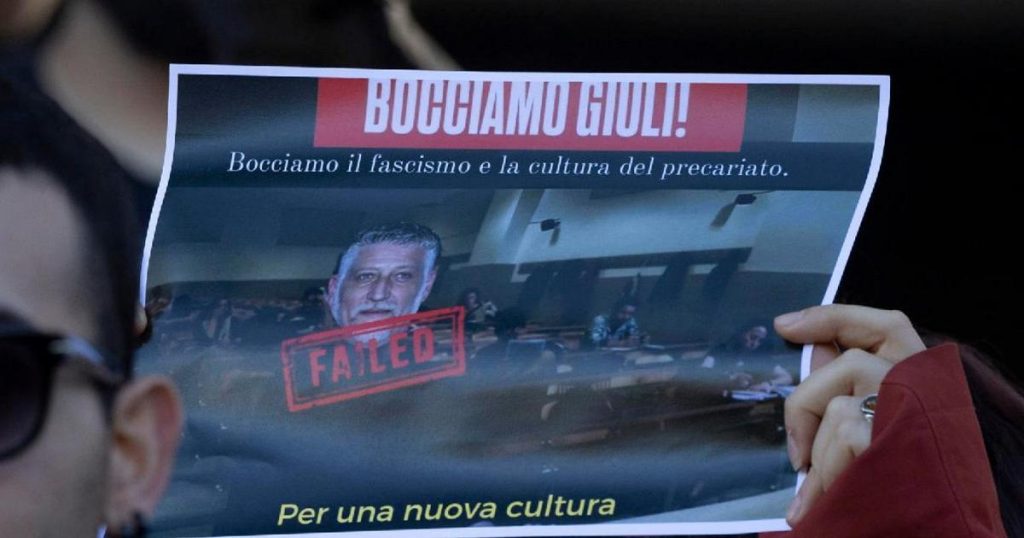The last exam before graduation for the Minister of Culture Alessandro Giuli turned into a moment of controversy. The owner of Via del Collegio Romano this morning took the exam in Theology of Theological Doctrines at the Faculty of Arts and Philosophy at the ‘Sapienza’ University of Rome. For the minister, who was questioned at 8 am for “security reasons,” the final grade was a 30. Outside the university, protests were held by the collective ‘Cambiare Rotta’. The change in schedule and the presence of law enforcement in the hallways sparked controversy among a group of students who spoke of a “off limits zone” and the fact that the exam was held behind closed doors. The students displayed banners saying “We fail Giuli! We fail fascism and the culture of precariousness. For a new culture.”
The comment from the Professor was positive, stating that “Giuli’s exam went very well, he got a 30.” The early arrival of the new minister compared to the originally scheduled time was agreed upon “for public order reasons,” explained Professor Gaetano Lettieri, an ordinary professor of History of Christianity. He emphasized that Giuli was very well-prepared, scored a 30, and complimented him. The professor clarified that the exam was not held behind closed doors, there were police officers present for security reasons, the door was open, the exam was transparent, the questions were difficult and precise, and Alessandro Giuli answered with great competence and showed no fear in front of a Minister of Culture.
During the exam of Giuli, a student named Nicolas claimed that the hallway was off limits and that they could not see the exam, but they saw the minister enter at exactly 8 am and leave after about ten to fifteen minutes. They mentioned that security personnel did not allow entry into the corridor. The students protesting expressed their opposition to the presence of the minister before he had completed his studies and compared it to fascism. The Professor who questioned Giuli responded by stating that any attempt to prevent an Italian citizen from taking an exam and pursuing studies is fascist and goes against the values enshrined in the Constitution.
The dean of the Faculty of Arts responded to the protests by clarifying that the exam was not held behind closed doors and that everything was regular and in accordance with university procedures. The dean emphasized that as a minister, Giuli has the right to take exams like any other student and exams are public. She refuted the claims that the exam was held in secrecy and asked journalists to leave after answering their questions, expressing a desire to work in peace without media attention. The protests and controversies surrounding Giuli’s exam highlight the tensions between students and the government, with accusations of fascism and the clash between ideals of freedom and the reality of political power.















